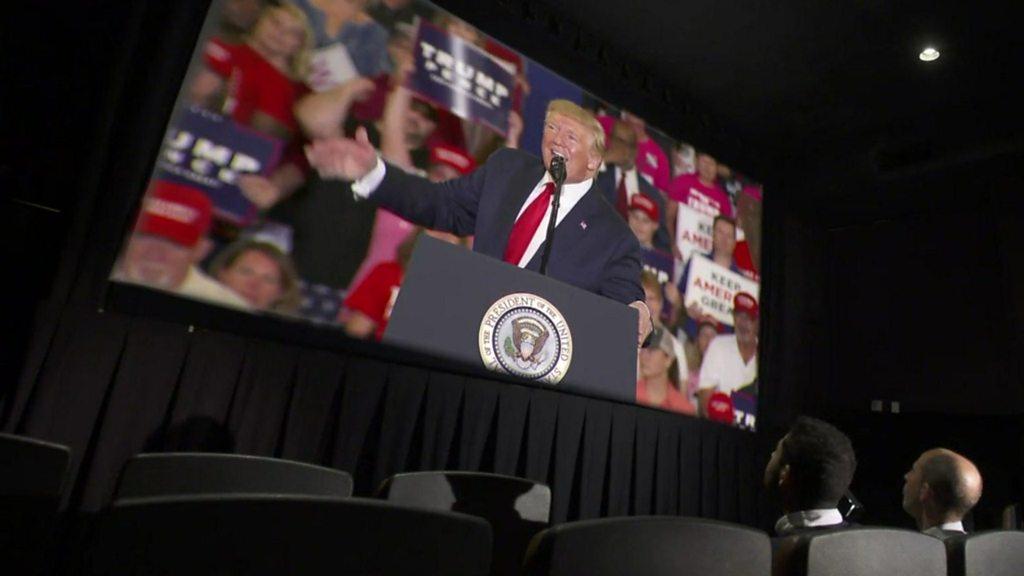Viewpoint: 'No crime, no impeachment' is a shaky defence
- Published
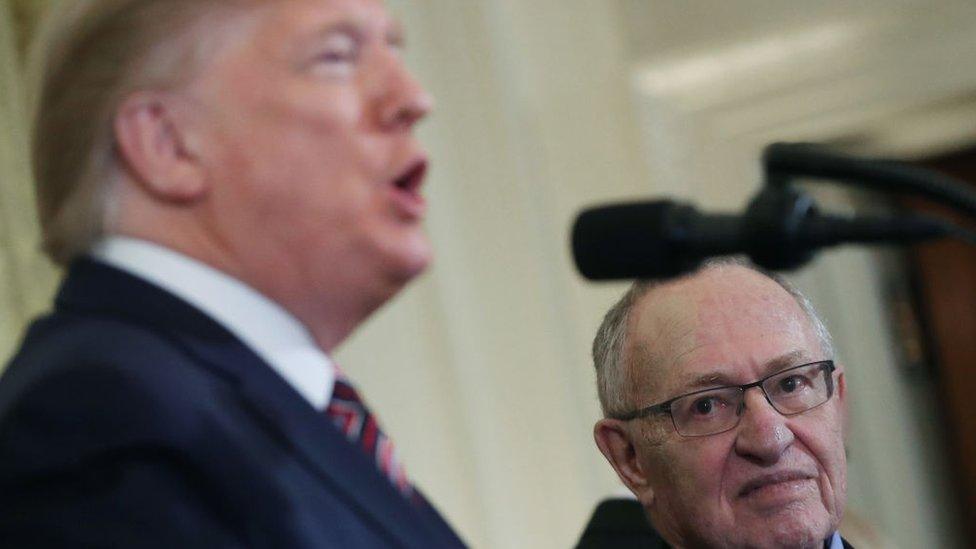
Alan Dershowitz is the "quarterback" for the White House's longshot defence of Mr Trump
The White House now contends that the ongoing impeachment trial against President Donald Trump is invalid because Mr Trump has not committed any criminal acts. But this argument is deeply flawed, writes legal scholar Jonathan Turley.
Forty-five years ago, Cowboys quarterback Roger Staubach said: "I closed my eyes and said a Hail Mary." The so-called Hail Mary pass is now a mainstay of American football where a quarterback, in the final seconds of a close game, throws the ball into the end zone on a hope and a prayer.
As the NFL play-offs wrap up and the Senate impeachment trial proceeds, Staubach's strategy came to mind. The White House has decided to frame its defence around a constitutional Hail Mary pass in arguing that the impeachment itself is invalid because articles of impeachment must be based on alleged criminal acts. The "quarterback" in this play is Harvard Professor Alan Dershowitz who believes that the Senate should simply dismiss the case as constitutionally invalid.
Hail Mary passes make for great football, but perfectly lousy impeachment trials. The problem is that this pass is not going into the constitutional end-zone but well beyond the stadium.
The argument is based on a literal reading of the standard "high crimes and misdemeanors." Those are criminal terms, to be sure, but they were never viewed as such in England, where the standard was first forged, nor in the United States in past judicial and presidential impeachments.
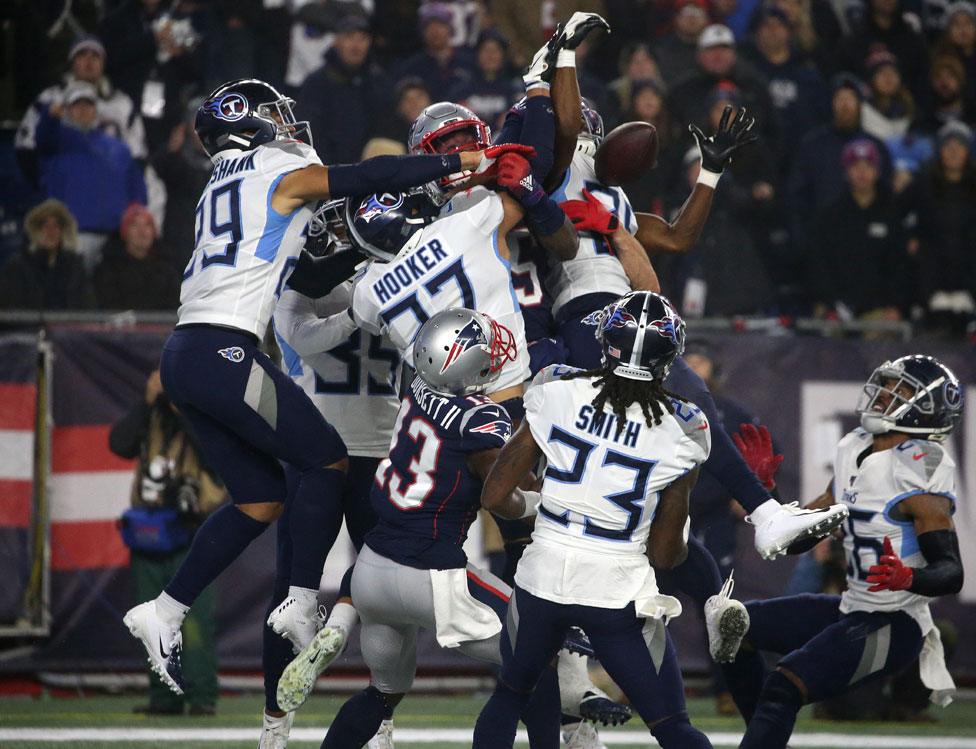
A Hail Mary pass causes a melee in the end zone
American impeachments stand on English feet and English impeachments often stood on non-criminal allegations. Indeed in 1604, John Thornborough, Bishop of Bristol, was impeached for writing a book on the controversial union with Scotland. Michael de la Pole, Earl of Suffolk, was impeached in 1386 for such offences as appointing incompetent officers and "advising the King to grant liberties and privileges to certain persons to the hindrance of the due execution of the laws".
Others impeachments were based on "giving pernicious advice to the Crown" and "malversations and neglects in office; for encouraging pirates; for official oppression, extortions, and deceits; and especially for putting good magistrates out of office, and advancing bad".
The English standard was so vague and broad that the Framers [of the US Constitution] were uncomfortable with replicating that process in the United States. Indeed, when the then-ongoing impeachment trial of Governor General Warren Hastings of the East India Company was raised by a Framer, James Madison immediately objected that the standard in the US should not include terms like "maladministration" that would effectively leave presidents as serving "at the pleasure of the Senate".
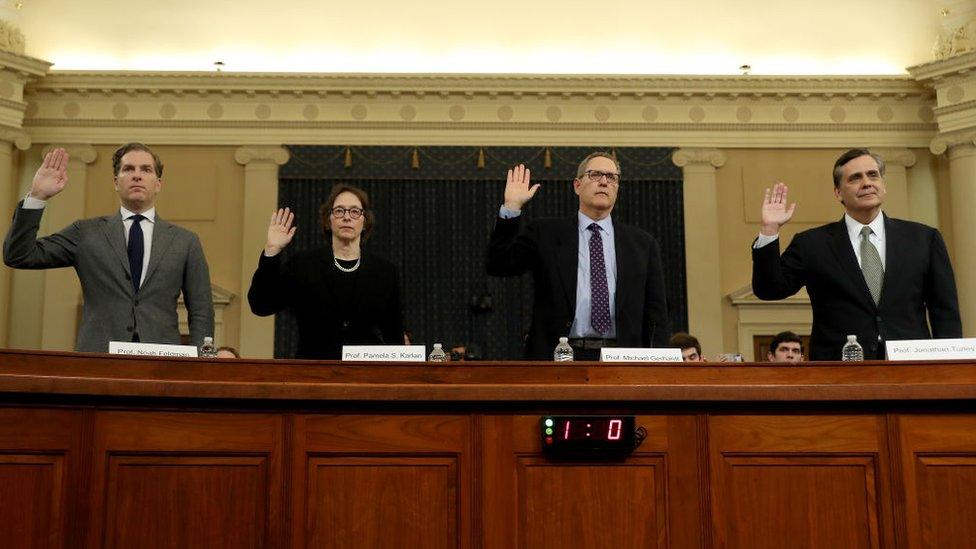
Jonathan Turley (far right) was one of four constitutional scholars called before Congress to testify during the impeachment hearings
The result was the adoption of the English standard of "high crimes and misdemeanors" with a narrower scope of individuals covered (judicial and executive officers). However, it was never limited to criminal acts.
Limiting impeachment to the criminal code would have been a remarkable abridgment since there were few crimes recognised at that time. More importantly, the Framers discussed the need to deal with violations of public trust and other non-criminal violations perpetrated by a president. They wanted a narrower standard, but not a purely criminal-based standard. If so, they could have simply stated it - and made the criminal code the scope of impeachment.
Finally, such a standard would create a nightmare where a president could engage in outrageous acts and remain unimpeachable - by staying just short of indictable. It is not surprising therefore that virtually every impeachment in US history has contained non-criminal allegations including the two presidential impeachments.
Trump has been impeached - how did we get here?
My disagreement with this argument puts me in a rather ironic position. During Trump's impeachment hearing, I argued against four articles of impeachment being touted by the the leadership of the House of Representatives, including bribery. The problem is that the allegations against Trump fall well outside of definitions and case law of these crimes. While such definitions are not controlling, Congress has always looked to criminal cases on the meaning of such offences.
The reason is simple. The criminal code offers an objective and neutral source for defining acts free from political manipulation.
Not only do such cases put a president on notice of the range of impermissible conduct, but it shows the public that the president is being held to a clearly defined and understood standard. Ultimately, I was relieved when the House Committee rejected those four articles and went forward with the two that I testified would be legitimate, if proven.
Now I have the inverse concern with the White House argument. By framing the defence around this unwarranted interpretation, the White House is putting Republican senators in a terrible bind. Many will not want to catch this Hail Mary pass and simply pray that no president in the future will ruin the Republic with unimpeachable but non-criminal acts.
Jonathan Turley is professor of constitutional law at George Washington University He also testified with other constitutional experts in both the Clinton and Trump impeachment hearings.

Want to know more?

A SIMPLE GUIDE: If you want a basic take, this one's for you
GO DEEPER: Here's a 100, 300 and 800-word summary of the story
WHAT'S IMPEACHMENT? A political process to remove a president
VIEW FROM TRUMP COUNTRY: Hear from residents of a West Virginia town
CONTEXT: Why Ukraine matters to the US
FACT-CHECK: Did Ukraine interfere in the 2016 election to help Clinton?

- Published1 February 2020
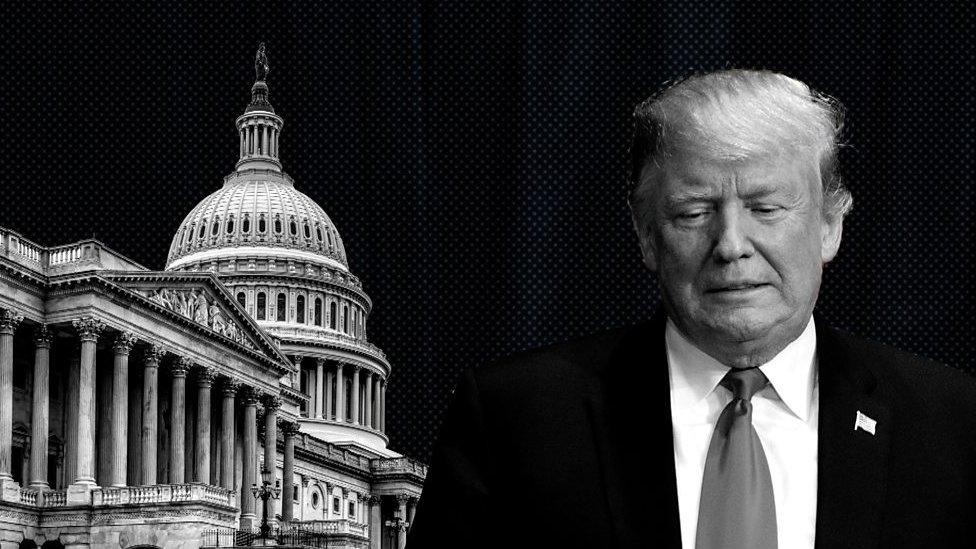
- Published18 January 2020
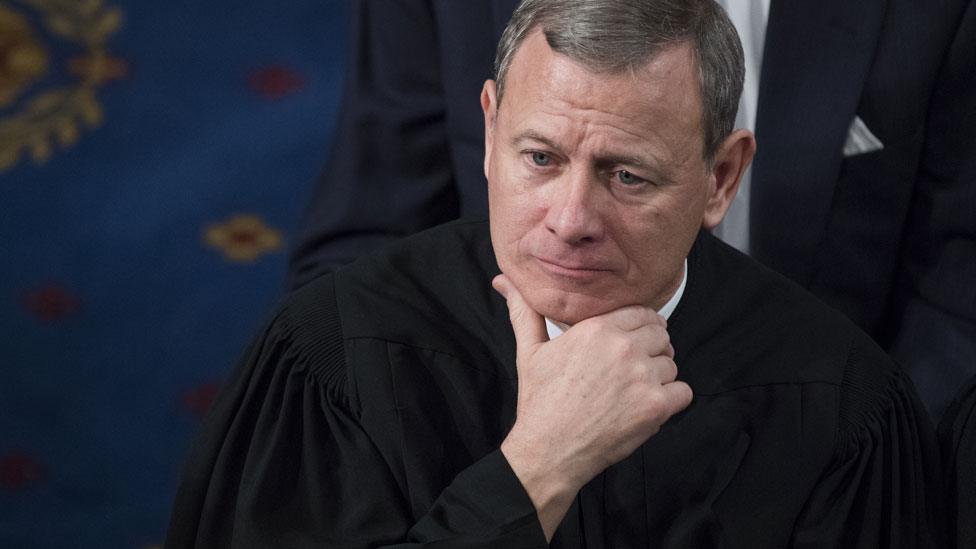
- Published20 January 2020
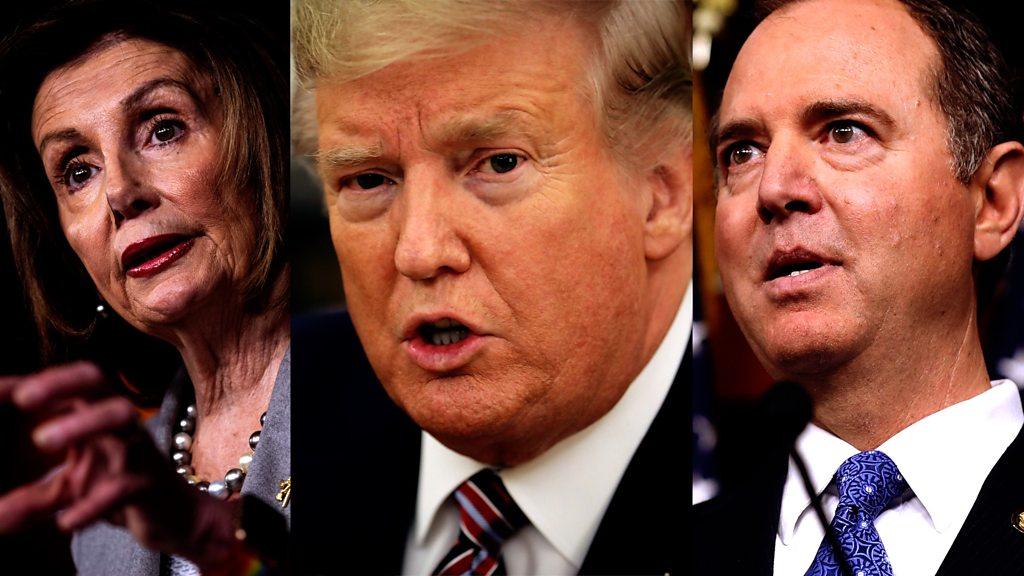
- Published21 January 2020
